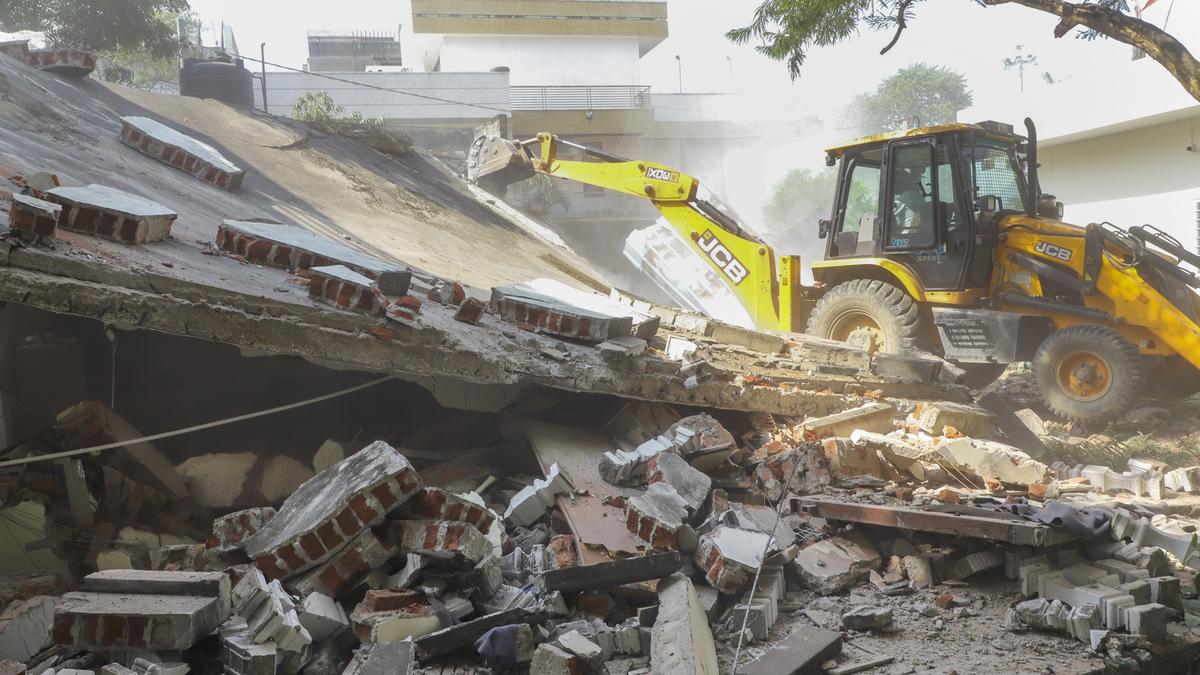 |
|
The Supreme Court of India has delivered a landmark judgment declaring bulldozer demolitions without proper legal procedure illegal. While the Jamiat Ulama-i-Hind, the main petitioner in the case, celebrates the verdict as a victory for justice and a precedent for future actions, some victims of the demolitions express disappointment, demanding compensation for the loss of their homes and livelihoods.
The Jamiat Ulama-i-Hind, a prominent Islamic organization in India, has been vocal against the use of bulldozers to demolish properties without due process. They have argued that such actions are not only illegal but also unjust, especially when targeting minorities and marginalized communities. The Supreme Court's verdict validates their stance, stating that the government cannot act as judge and jury in such cases. The judiciary, the court affirms, holds the sole authority to determine what is legal or illegal.
Arshad Madani, president of one of the factions of Jamiat, expressed satisfaction with the judgment, emphasizing the court's recognition that bulldozer demolitions are not a form of punishment but a crime. Mahmood Madani, leader of the other faction, echoed similar sentiments, highlighting the importance of upholding the rule of law and safeguarding fundamental rights. The verdict, they believe, serves as a strong message against the misuse of power and reaffirms the judiciary's role as the ultimate arbiter of justice.
Despite the overall victory, victims of bulldozer demolitions, like Rashid Khan from Udaipur and Mohammed Hussain from Ratlam, voice their dissatisfaction. While acknowledging the legal victory, they argue that it is incomplete without compensation for their losses. They have lost their homes, their livelihoods, and their sense of security. While the court has declared the demolitions illegal, it has not addressed the issue of compensation, leaving these victims with an uncertain future.
Hussain, a daily wager who is the sole breadwinner for his family, describes living under a plastic and tarpaulin roof, unable to afford a proper home. He expresses disappointment with the lack of compensation, which he believes should be granted by the authorities who demolished his home without giving him even a day to collect his belongings. Similarly, Khan, a tempo driver, recounts losing his home due to accusations against his tenant's son. While he welcomes the court's ruling, he is unable to rebuild his house without compensation, questioning the justice of the verdict when he bears no responsibility for the alleged crime.
Mahmood Madani, reiterating the sentiments of the victims, highlights the need for compensation for all those who have suffered property loss due to illegal demolitions. The court's judgment, while a significant step towards ensuring justice, is incomplete without addressing the financial and emotional burden borne by the victims. The struggle for compensation is likely to continue, as victims seek to regain their lost homes and rebuild their lives.
Source: Bulldozer victims seek compensation even as Jamiat hails Supreme Court verdict
